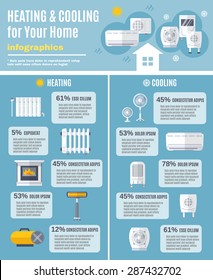The Future Of Home Home Heating - Exactly How Heat Pump Technology Is Progressing
The Future Of Home Home Heating - Exactly How Heat Pump Technology Is Progressing
Blog Article
Article Developed By-Rosenthal Stack
Heat pumps will be an essential innovation for decarbonising heating. In a circumstance consistent with governments' introduced energy and environment dedications, their global ability increases by 2030, while their share in heating rises to one-quarter.
They work best in well-insulated homes and rely upon electricity, which can be supplied from a sustainable power grid. Technological breakthroughs are making them much more reliable, smarter and less expensive.
Gas Cells
Heat pumps use a compressor, cooling agent, coils and followers to move the air and warmth in homes and appliances. They can be powered by solar energy or power from the grid. They have been acquiring popularity because of their affordable, silent operation and the capability to produce power throughout peak power need.
Some companies, like IdaTech and BG MicroGen, are servicing fuel cells for home heating. These microgenerators can change a gas boiler and generate some of a home's electrical demands with a link to the electrical energy grid for the remainder.
Yet there are reasons to be hesitant of using hydrogen for home heating, Rosenow states. It would certainly be costly and ineffective contrasted to various other modern technologies, and it would certainly contribute to carbon exhausts.
Smart and Connected Technologies
Smart home innovation permits property owners to attach and regulate their tools from another location with using mobile phone applications. For instance, clever thermostats can discover your home heating preferences and automatically get used to maximize power consumption. Smart lights systems can be controlled with voice commands and automatically shut off lights when you leave the space, minimizing energy waste. And smart plugs can keep track of and manage your electrical use, permitting you to identify and limit energy-hungry appliances.
https://www.npr.org/2022/03/09/1085426012/gas-prices-saving-tips -savvy house shown in Carina's interview is an excellent picture of exactly how passengers reconfigure space home heating practices in the light of new clever home innovations. They rely on the tools' automatic attributes to perform daily adjustments and concern them as a practical means of conducting their home heating practices. Therefore, they see no factor to adjust their techniques further in order to allow flexibility in their home energy demand, and interventions focusing on doing so may deal with resistance from these houses.
Electrical energy
Given that warming homes make up 13% of US discharges, a switch to cleaner choices might make a large distinction. Yet the innovation faces obstacles: It's pricey and calls for extensive home improvements. And it's not constantly suitable with renewable resource sources, such as solar and wind.
Till lately, electrical heatpump were too pricey to take on gas versions in the majority of markets. Yet brand-new technologies in layout and products are making them much more affordable. And far better cold environment efficiency is allowing them to function well even in subzero temperatures.
https://www.forbes.com/sites/forbesbusinesscouncil/2021/08/24/proactive-is-the-new-reactive-what-todays-labor-shortage-means-for-the-hvac-supply-chain/ following action in decarbonising heating may be the use of heat networks, which draw warmth from a main resource, such as a neighboring river or sea inlet, and disperse it to a network of homes or buildings. That would certainly minimize carbon emissions and allow households to take advantage of renewable energy, such as green electrical power from a grid provided by renewables. This option would be much less pricey than switching over to hydrogen, a fossil fuel that calls for new facilities and would just reduce CO2 discharges by 5 percent if paired with boosted home insulation.
Renewable resource
As electrical power prices go down, we're starting to see the exact same pattern in home heating that has driven electric autos right into the mainstream-- but at an even quicker speed. The strong climate instance for electrifying homes has actually been pushed even more by brand-new research study.
Renewables represent a substantial share of modern-day warm intake, but have actually been offered restricted plan focus worldwide compared to other end-use markets-- and also much less interest than electrical power has. In part, this reflects a mix of consumer inertia, split motivations and, in numerous countries, aids for fossil fuels.
New modern technologies can make the change much easier. For instance, heat pumps can be made more energy reliable by replacing old R-22 refrigerants with brand-new ones that don't have the high GWPs of their predecessors. Some specialists likewise envision district systems that draw warmth from a neighboring river or sea inlet, like a Norwegian fjord. The cozy water can after that be made use of for heating & cooling in a community.